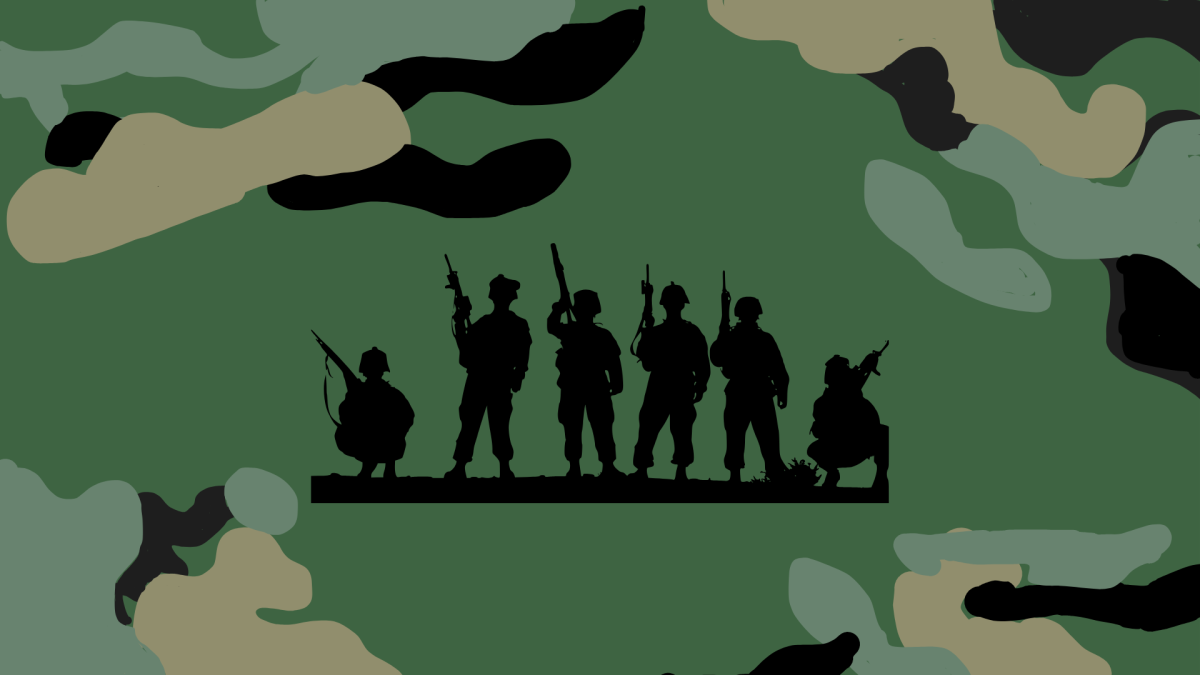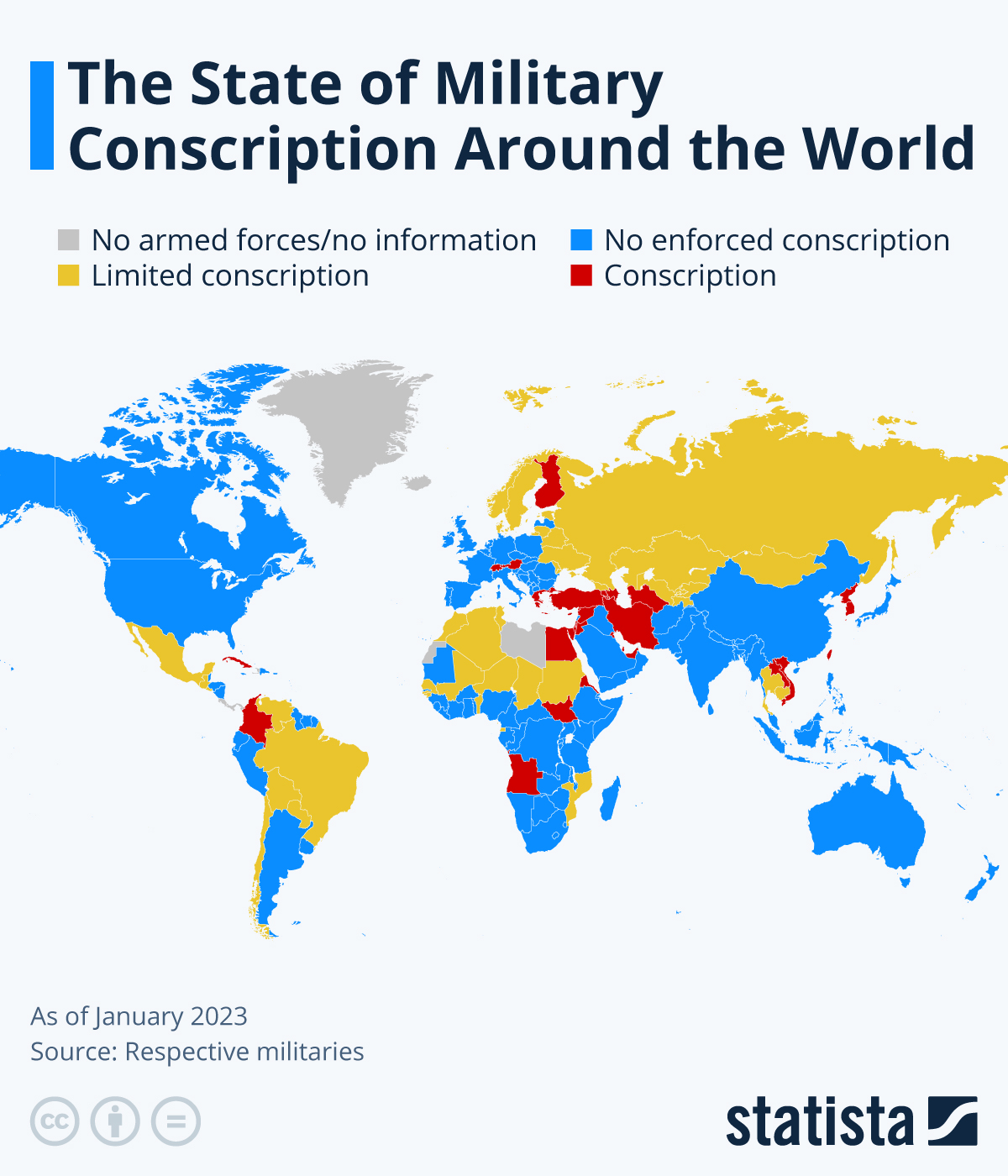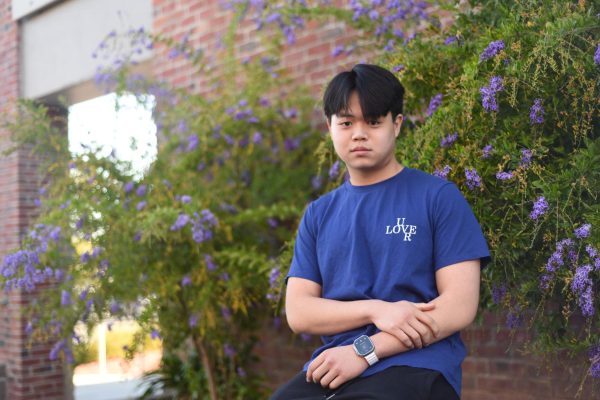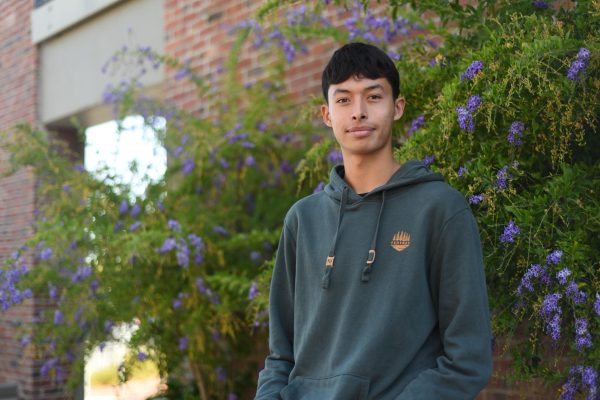Looking through the scope of a rifle, former Emergency Medical Technician for the Israeli military Orr Sharpe aims her weapon at a target. Before she pulls the trigger, Sharpe shuts her eyes in fear and fires her shots, missing all of them. This is the third time that Sharpe has attempted the shooting exercises, and the third time she has failed them. Fortunately for her, an officer overseeing the exercises decides to pass her, understanding that she will be an EMT and won’t be doing much fighting.
Sharpe is a devout pacifist who doesn’t like holding weapons. However, Israel’s mandatory military service requirement forced her to enroll from 1990 to 1992. Luckily, Sharpe found a way to serve her country without using weapons.
“I was not extremely joyful that I had to do military service,” Sharpe said. “But it’s something that I grew up with, and I knew that it was coming, so it wasn’t a big shock. I knew I had a little bit of an issue because I was a pacifist, so I had to work hard to get enlisted to become a medic so I didn’t have to do any fighting. After basic training, I refused to hold a gun.”
South Korean citizen and sophomore Jihwan Lee will also have to fulfill his country’s mandatory military service requirement in the near future. While some might view this as a rite of passage, Lee feels apprehensive about the experience. His concerns are shaped by the numerous reports of mistreatment within the ranks, with hazing and bullying by senior officers being particularly prevalent. This environment, he believes, undermines the camaraderie that should exist among soldiers.
“In the past, the higher ranking officers would kind of bully the soldiers, and there would be trouble between them,” Lee said. “And there have been news articles about how higher ranking officers would punish soldiers without reason. Whenever I talk to friends and people that I know in Korea, they all tell me not to go because they experienced the harsh training.”
The physical and emotional toll of military service isn’t Lee’s only worry. He feels that he will be disadvantaged if he chooses not to do military service, as South Korean employers may think that people who completed military service “have more experience and are more organized.” But to other students, like junior Brian Chou, having to complete military service abroad can create legal challenges for students such as himself who are on green cards.
“I can delay my military service if I go to college,” Chou said. “But if I fail to get into college, then I’ll just need to go back to Taiwan and do my military service, and I couldn’t come back to America because I need to stay in America for 200 days in a year in order to have my green card. So, if I fail to get into college, I won’t come back to America anymore.”
Green card issues aren’t the only problem that Chou will face. He says that time spent in the military could take away from working on his career. Despite this, Chou is still looking forward to his military service, because he thinks that he will learn other important skills like leadership and discipline.
“In terms of their career, other people don’t need to waste a year in the military and that will save a lot of time,” Chou said. “But military service can provide a unique experience and teach skills that others won’t have. So actually, it depends on the individual. In my perspective, I don’t think military service will damage your career or your college.”
Chou’s hopes that military service could provide a unique experience is shared by Sharpe, who says during her time in the military and the Gulf War, she made lifelong relationships, had many memorable experiences and learned more about herself.
“I met my husband there,” Sharpe said. “I met a bunch of people and we’re all still kind of friendly, but two became lifelong friends. I learned a lot about standing up for myself and standing up for others. I learned to push myself and achieve stuff that before I would just say I cannot do, and I learned that actually, I can.”
Although Lee has the option of skipping military service if he obtains American citizenship and renounces his Korean citizenship, he says he wants to complete his military service as it will give him some time to think about his career.
“For me, I can get my American citizenship if I live here three more years,” Lee said. “And if I get American citizenship, then I don’t have to do Korean military service. But personally, I think military service can be a good time for thinking about my future, so I think it’s kind of a positive.”
Military service not only provided Sharpe lessons and areas for growth, but her experience as an EMT led her to rethink her goal of becoming a doctor, and she instead opted for a more engineering-focused degree.
“Before the military, I thought of becoming a doctor—I wanted to be an MD,” Sharpe said. “I went and I volunteered to be an EMT, where I learned that I really don’t like touching people, especially dirty or stinky people. So I scratched the MD thing and I went and got a degree in biotech engineering, and I still treat diseases, but not individual people.”
Sharpe believes that military service is important to help out one’s country. However, Sharpe says people shouldn’t necessarily have to serve in the military and that they can do other civil work like working for the fire department or working for a hospital instead. Regardless, Sharpe still believes that her time in the military was a unique experience and helped her grow as a person.
“I don’t have any regrets doing military service, but at the same time, I’m happy that my kids don’t have to,” Sharpe said. “If you ask my husband, he actually feels that the kids are missing out on not doing military service, because you definitely learn to stretch your boundaries more and it really gives you a different perspective of life.”













